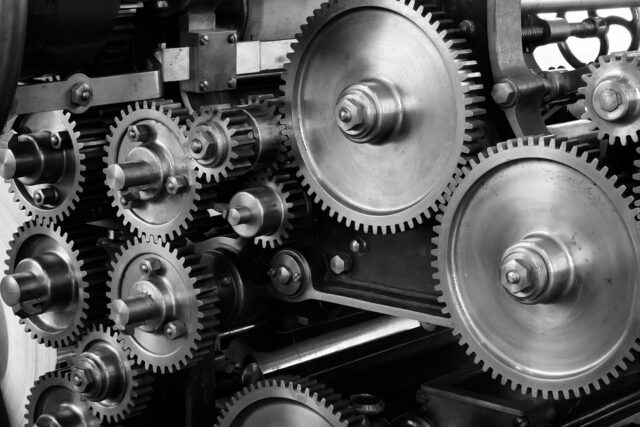[ad_1]
Manufacturing has come a long way since the industrial revolution, with advancements in technology continually changing the way products are made. From 3D printing and automation to artificial intelligence and the Internet of Things, the future of manufacturing is set to revolutionize industry as we know it.
One of the key technologies driving this revolution is 3D printing, also known as additive manufacturing. This process allows for the creation of complex and customizable products with less waste and shorter production times. Companies like Adidas and Nike have already begun using 3D printing to create custom shoes, while medical device makers are using it to produce personalized implants. The possibilities are endless, with 3D printing opening up new opportunities for innovation and creativity in manufacturing.
Automation is another key trend shaping the future of manufacturing. Robots and other automated systems are increasingly being used in factories to perform repetitive tasks quickly and accurately. This not only improves efficiency and productivity but also reduces the risk of human error and injuries. Companies like Tesla and Amazon have already embraced automation in their manufacturing processes, and more are likely to follow suit as the technology becomes more affordable and accessible.
Artificial intelligence (AI) is also playing a growing role in manufacturing, helping to optimize production processes and improve product quality. AI-powered machines can analyze vast amounts of data in real-time to identify patterns and make decisions, leading to more efficient operations and better outcomes. By harnessing the power of AI, manufacturers can reduce costs, improve energy efficiency, and enhance overall performance.
The Internet of Things (IoT) is another technology that is revolutionizing the manufacturing industry. By connecting machines and devices to the internet, manufacturers can monitor and control their operations remotely, optimize resource usage, and predict maintenance needs before they arise. This can result in significant cost savings and improved productivity, as well as enabling new business models and revenue streams.
Overall, the future of manufacturing is bright, with technologies like 3D printing, automation, AI, and IoT set to revolutionize the industry in ways we have never seen before. Companies that embrace these technologies and adapt to the changing landscape stand to benefit greatly, while those that resist risk falling behind. The future of manufacturing is here, and it’s time to embrace the revolution.
[ad_2]









































